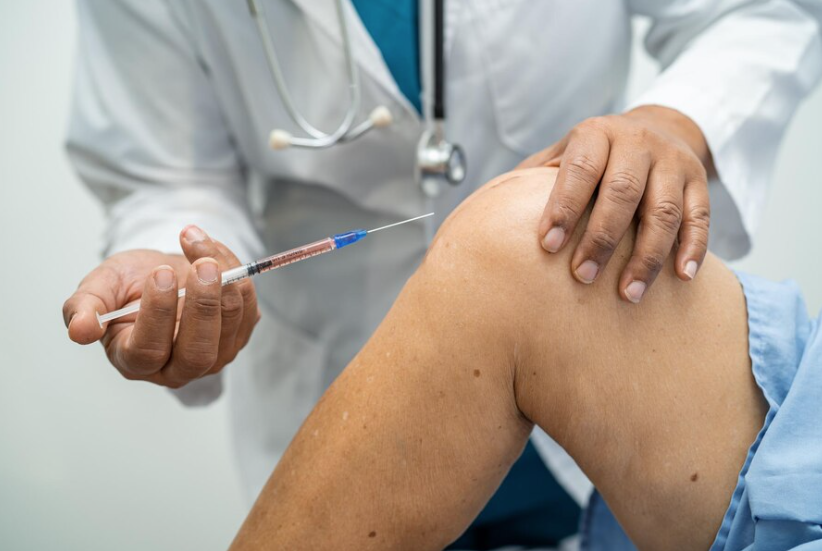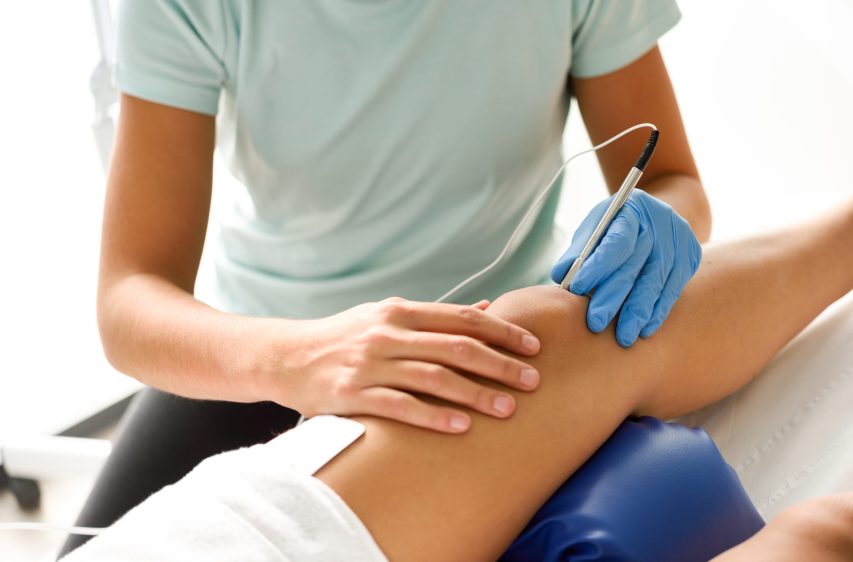In the world of orthopaedic therapies, one technique that frequently takes centre stage is the steroid injection in the knee. Knee discomfort, whether caused by osteoarthritis, rheumatoid arthritis, or another inflammatory condition, can greatly impair one’s life’s quality. Steroid injections, often known as corticosteroid injections, have developed as a common treatment option for knee pain and inflammation. You can reach to Online Steroids UK Outlet for Steroids ranging from oral to injectable!
Here, we’ll go into the mechanism of action of steroids injections in the knees, advantages, and what to expect before and after the treatment.
Understanding Steroid Injections
Mechanism of Action: Corticosteroids, potent anti-inflammatory drugs, are the active ingredient in steroid injections. These steroids work by suppressing inflammation, reducing swelling, and relieving pain when injected into the knee joint. They are a good choice for treating ailments like bursitis, tendonitis, and arthritis because of their targeted action.
Conditions Treated
Steroid injections in the knee are commonly used to address various conditions, including:
- Osteoarthritis
- Rheumatoid arthritis
- Bursitis
- Tendinitis
- Synovitis
The Procedure
Getting Ready for the Injection
The doctor will examine the knee thoroughly before the operation, and he or she may use imaging methods such as ultrasound or X-rays to identify the injection site. To reduce hazards, the patient’s medical history, including any allergies and current drugs, will be taken into account as these factors play a crucial role in determining the core aspects.
The Injection Process
The actual injection treatment is a reasonably quick outpatient procedure. After the patient is comfortably positioned, the area surrounding the knee is cleansed. To numb the area and make the injection more bearable, a local anaesthetic may be used. With a syringe, the medical professional delicately injects the corticosteroid into the desired joint area.
Post-Injection Care
Following an injection, patients are typically observed for a short amount of time to make sure no adverse responses occur right away. It is typical for medical professionals to advise rest and limited activity for one or two days after the procedure. To treat any soreness following an injection, ice packs and over-the-counter painkillers could be recommended.
Benefits of Steroid Injections
Quick Pain Relief
The potential of steroid injections to quickly relieve knee pain is one of their main benefits. As soon as the anti-inflammatory effects start to work, patients frequently feel much less discomfort.
Better Joint Function
Steroid injections help to improve joint function by lowering oedema and inflammation. This can improve mobility and help people with knee issues manage their daily tasks more easily.
Non-Surgical Method
One non-surgical method for treating knee discomfort is to administer steroid injections. People who might not be good candidates for surgery or who would rather use conservative treatment alternatives will especially benefit from this.
Targeted Pain Management
Using steroid injections, pain alleviation can be precisely targeted. The targeted injection of corticosteroids into the knee joint guarantees that the therapeutic benefits are focused at the site of pain, in contrast to oral drugs that have an impact on the whole body. This focused strategy maximizes the impact on the affected area while minimizing systemic adverse effects.
Preventing or Postponing Surgery
Steroid injections can be an effective means of preventing or postponing the need for surgical intervention for people who are considering knee surgery. By efficiently controlling discomfort and swelling, these injections can act as a stopgap, enabling patients to consider less intrusive choices or bide their time until medical breakthroughs.
Supportive Role in Rehabilitation
Steroid injections can be beneficial in rehabilitation initiatives. When steroid injections are used to reduce pain and inflammation in patients receiving physical therapy for knee issues, the therapeutic exercises that are prescribed can become more successful. Therefore, a quicker return to regular activities and a shorter rehabilitation phase may result from this.
Long-lasting Relief
Steroid injections for knees can provide relief that extends beyond the immediate post-injection period. While quick pain relief is a notable benefit, some individuals may experience prolonged alleviation of symptoms, allowing for an extended period of improved joint function and reduced discomfort.
Value for Diagnosis
An injection of steroids may sometimes have important diagnostic implications. Physicians may be able to identify that the patient’s illness is inflammatory if the patient feels significant and long-lasting alleviation following the injection. The continuing management plan for the individual can be customized using this information to help with decisions about additional therapy.
Conclusion
The utilization of steroid injections for knee pain is a useful therapy option for a range of knee ailments. They are a well-liked option for people looking for relief without surgery because of their quick reduction of pain and inflammation. But in order to choose the best course of action for their particular situation, people must be fully informed by their healthcare providers.


